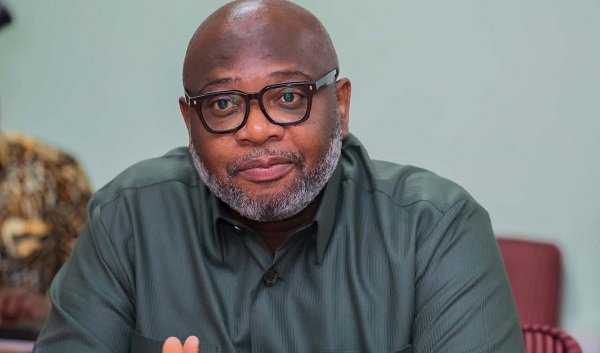Ghana Cocoa Board (COCOBOD) has refuted allegations made by Fiifi Boafo, the former Head of Public Affairs.
In a swift response in a press statement issued on Wednesday, August 20, COCOBOD emphatically stated that none of its directors has been asked to stay home and draw salary.
According to COCOBOD, only the former Director of Finance is on leave after
COCOBOD statement read, “Attention of Management of Ghana Cocoa Board (COCOBOD) has been drawn to misleading representations making rounds in sections of the media suggesting that ten (10) Directors at COCOBOD have been asked to stay home on full salary
Management wishes to state emphatically that no Director has been asked to stay home and draw salary”.
The statement added, “Management again wishes to state that no Director is on leave except for the former Director of Finance who for eight years had not gone on leave.
Management wishes to state that transfers and reassignments are part of strategic realignment to bring efficiency and effectiveness into the operations of the Board”.
COCOBOD statements come on the heels of Fiifi Boafo, the former Head of Public Affairs at the Ghana Cocoa Board (COCOBOD), alleging that the Acting Chief Executive of COCOBOD, Dr Randy Abbey, has ordered COCOBOD directors to stay home with pay.
According to Fiifi Boafo, Randy Abbey has replaced all the top COCOBOD directors’ homes, paying them monthly and replacing them with the ruling National Democratic Congress members.
Fiifi Boafo noted that those sent home by the COCOBOD CEO are in their 40s and 45s with either 15 to 20 years of experience.
Speaking in an interview shared on X, Fiifi Boafo stated, “The one thing Randy Abbey has done? When he came, he asked all directors of COCOBOD to stay home with their monthly pay, and he replaced them with NDC members who are also being paid”.
He further detailed, mentioning some names of directors ordered to stay home, “Vincent Okyere Akomeah was a director, but now he is at home and still being paid. The President has replaced him with someone else who is also on the payroll.
His deputies, Paul Kofi and Frederick Amponsah Doku, are also affected. Frederick was promoted to director, but now he, too, is home, still receiving a salary. The Director of Finance has been replaced, but he is being paid, and the Director of Legal has also been replaced.
The Cocoa Health and Extension director is home and has been replaced by another person. Almost all the directors have been replaced and asked to sit at home while being paid”, he alleged.
Fiifi Boafo added, “Some of those people are in their mid-40s, 45s. How is that person up for retirement? They are being paid, and they are at home and have been replaced because their party is in government, so their people must be directors.
These are not political appointments; not a single one of them has worked at COCOBOD for less than 15 years. Some have served for 20 and others for as many as 25 years”.
The former COCOBOD Head of Public Affairs noted that Randy Abbey’s dismissal of these people with institutional memory and experience places COCOBOD in serious trouble.
He added, “The danger is that during PPRC meetings that determine prices and other stuff due to their institutional memory, these people could have contributed with their knowledge, but now they are home doing nothing and still being paid.
Later, they will come and tell us that COCOBOD is in debt. How won’t you accumulate debt with all these payments?”, he questioned.
Meanwhile, the World Bank has revealed that Ghana’s cocoa sector is facing serious threats due to the Ghana Cocoa Board (COCOBOD)’s persistent operational and fiscal challenges.
According to the World Bank’s latest Ghana Economic Update, despite record-high global cocoa prices, Ghana’s production remains weak.
The World Bank asserted that COCOBOD’s quasi-fiscal operations have heightened financial risks.
The World Bank warned that COCOBOD challenges, if left unresolved, will have a dire impact on Ghana’s economy.
Cocoa remains Ghana’s second-largest export earner after gold.
Global Cocoa prices are at multi-decade highs, with experts calling on Ghana to urgently address production and financing bottlenecks to capitalise on the recent market conditions.
See the statement below:


